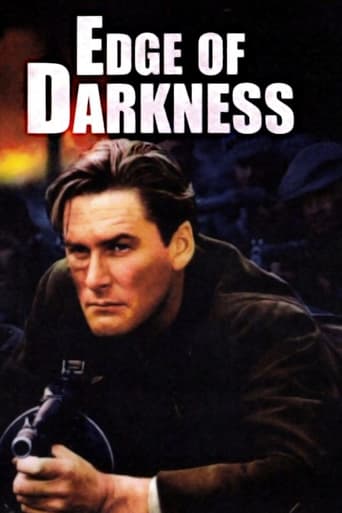


Edge of Darkness
The film pivots around the local Norwegian doctor and his family. The doctor's wife (Ruth Gordon) wants to hold on to the pretence of gracious living and ignore their German occupiers. The doctor, Martin Stensgard (Walter Huston), would also prefer to stay neutral, but is torn. His brother-in-law, the wealthy owner of the local fish cannery, collaborates with the Nazis. The doctor's daughter, Karen (Ann Sheridan), is involved with the resistance and with its leader Gunnar Brogge (Errol Flynn). The doctor's son has just returned to town, having been sent down from the university, and is soon influenced by his Nazi-sympathizer uncle. Captain Koenig (Helmut Dantine), the young German commandant of the occupying garrison, whose fanatic determination to do everything by the book and spoutings about the invincibility of the Reich hides a growing fear of a local uprising.
-
- Cast:
- Errol Flynn , Ann Sheridan , Walter Huston , Helmut Dantine , Ruth Gordon , Judith Anderson , Roman Bohnen


Similar titles



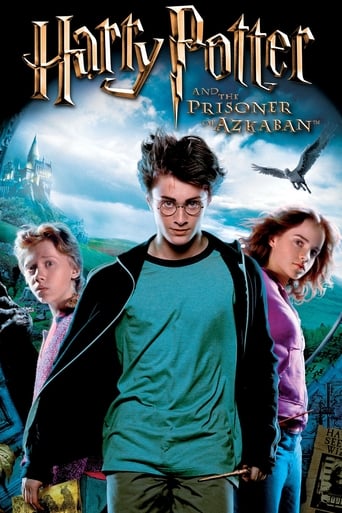

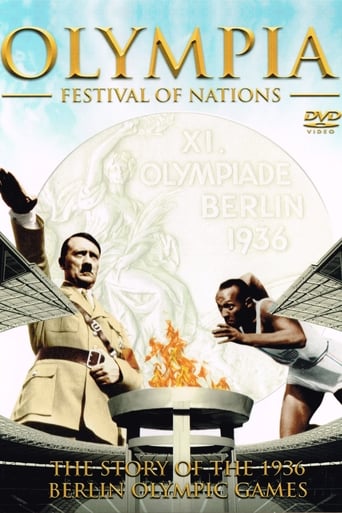

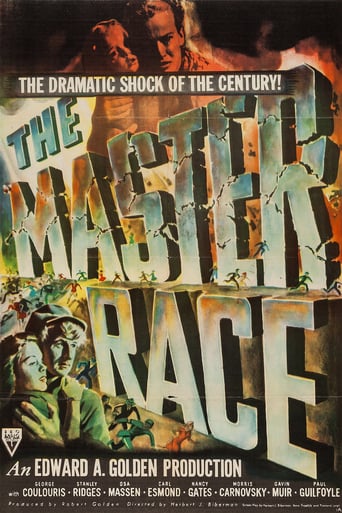
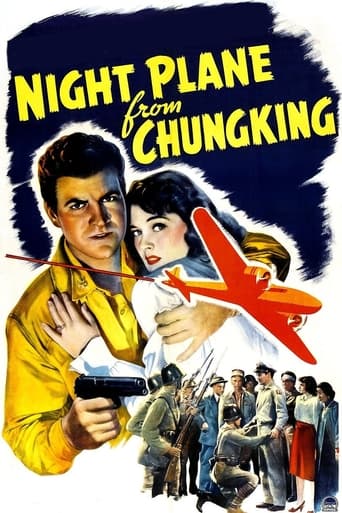

Reviews
Touches You
That was an excellent one.
Absolutely the worst movie.
A terrific literary drama and character piece that shows how the process of creating art can be seen differently by those doing it and those looking at it from the outside.
Errol Flynn is the star here, but his part is actually minor in the context of this panoramic insight into a small Norwegian fishing village in the far north of Norway and its villagers, their life under duress of the Germans and how an extreme conflict is unavoidable. It was made in the most critical year of World War II, when the Germans at the height of their power started to lose.There are many memorable and eloquent scenes here, well up to the highest standard of Lewis Milestone's works, like the great scene in the church, when the villagers are having a conference under cover of a Sunday service, which actually introduces the drama. Many small characters also rise to greatness during the progress of the film, like the doctor who is forced by circumstances to abandon his absolute neutrality and pacifism, like the supposed traitor Hans who desperately tries to prove that he is not, like the pious mother who even she finally converts and abandons her firm belief in peace, like the priest who in the end fires the first shot, and many more. Errol Flynn disappears almost entirely in this great drama of the necessity of at any cost resisting and fighting any foreign occupational force.It's a great film in spite of its tremendous bathos of exaggerations, and although in the beginning you encounter a village where everyone seems to have wiped out everyone, it's extremely interesting to see how this drama gradually evolves to its apocalyptic fatality.The music by Franz Waxman adds to it, making efficient use of the Norwegian national anthem, a Lutheran hymn and of course Siegfried's death by Wagner.
Directed by Lewis Milestone, who won Oscars for Two Arabian Knights (1927) and All Quiet on the Western Front (1930), this William Woods novel was adapted by Robert Rossen. It's about the struggle against the Nazi occupation in Norway during World War II in the spring of 1942.Despite the fact that it's primarily a propaganda film, it's a very good drama which features solid performances by several of the more popular Warner Bros. stars in their day, including: Errol Flynn, Ann Sheridan, Walter Huston, Helmut Dantine, Judith Anderson, and Ruth Gordon, among others.It's May 28, 1942 and a German patrol plane flies over a small fishing community in Norway. Its pilot notices that a Norwegian flag is flying over the garrison in lieu of the Nazi's flag. He radios this fact to the authorities who dispatch a troop laden boat to the area. Upon investigation, the Germans discover that, except for the raving cannery owner - Kaspar Torgerson (Charles Dingle) - who they unceremoniously shoot dead, the town's streets are strewn with dead people, including their own soldiers. They continue to march through the village to its hotel, where they see the remains of a "last stand" and find their occupation commander Captain Koenig (Dantine) at his desk, where he's been shot in the head. The rest of the story is told in flashback:Koenig relates the details of his situation to a visiting Nazi SS officer: he has 150 men positioned throughout the 800 resident fishing community and, though they've experienced small forms of resistance at random times over the past 2 years, he feels confident that the situation is under control such that he's applied for a promotional transfer. He lists the names of several leaders of the resistance, but says he hasn't got what he needs to arrest them and his orders are to keep the peace. We learn that fisherman Gunnar Brogge (Flynn); his girlfriend Karen (Sheridan), the daughter of Dr. Stensgard (Huston); hotelier Gerd Blarnesen (Anderson), whose father was killed during the German invasion, yet she's "romantically" pursued by a German officer; shopkeeper Lars Malken (Roman Bohnen); and baker Knut Osterholm (Art Smith) are all resistance leaders (as is Monte Blue, who appears uncredited). Gordon plays Dr. Stensgard's (Huston's) wife Anna; Nancy Coleman plays Koenig's kept woman, and a local who doesn't want to get involved. I believe that's Virginia Christine, the Folgers coffee woman, who appears uncredited as the Stensgard's maid. As it turns out, the Nazi SS officer is really British, and is undercover to tell the Norwegians that arms are on the way, and how they'll be delivered. The college educated Karen is given the task of remembering the complicated signally code.A town meeting is held in the church to decide what to do once the arms are obtained. Of course, its pastor (Richard Fraser) is against violence. Hammer (Tom Fadden, uncredited) tells the congregation how he was injured in the massacre that occurred in another similar community not far away. Gunnar calmly leads the meeting, making sure each one's views are heard. Dr. Stensgard doesn't want to get involved. The old school teacher Sixtus Andresen (Morris Carnovsky) doesn't have any advice or wisdom to impart. Ultimately, however, they vote to take up arms against their German occupiers once the time comes. Torgerson, who wasn't at this meeting but senses an uprising, is a businessman who wants to keep the peace, for the fisherman to continue to work as if nothing has happened such that his cannery can remain open. So, he invites his nephew, his sister is Anna, Johann Stensgard (John Beal) to return from Oslo, where he didn't resist its occupation by the Germans. Obviously Karen is not too happy that her brother, referred to as a Quisling (Norway's equivalent of Benedict Arnold), has come home at such a critical time. She informs the rest of the resistance leaders of the possibility that he will betray them so that, encouraged by Torgerson who promises him the cannery is his future, when he does he is made to be the fool by Malken, who's somewhat of a boob himself with feelings of self importance.Since you know where this is leading, there isn't much more to tell except, given its propaganda theme, that the Germans led by Koenig (played as well as can be expected by Dantine, who you'll probably recognize as the German pilot that Greer Garson's Mrs. Miniver (1942) must deal with, given the one dimensional character he had to play) are shown to be successively more oppressive - burning Andresen's books, committing rape, etc. - until a full scale, armed revolt is the town's only recourse.What is particularly noteworthy is Huston's characterization of the henpecked doctor who is credibly transformed from a pacifist into a patriot during the course of events. The battle scenes themselves are nothing spectacular or unique, but they are worthy of the rest of this quality film.
A story incomparable of a people unconquerable about the underground movement in Norway , 1942 , based on the novel by William Woods . After two years under German rule , a small Norwegian fishing village rises up and revolts against the occupying Nazis . A fisherman (Errol Flynn) along with his loyal fiancée (Ann Sheridan) leads the local (Walter Huston , Ruth Gordon , Judith Anderson and several others) underground movement against a Nazi nasty captain (Helmut Dantine). The second part is quite starkly moving developing account of deeds that befall about the villagers and when they go into action.A surprisingly very strong version about Norwegian resistance with career-best interpretations from Errol Flynn and Ann Sheridan . With a spectacular opening reminiscent of 'Beau Gest' , the film gets action , pretty downbeat deeds , intense drama with moments of extraordinary power and breathtaking final battle . Although numerous problems happened throughout shooting , this movie contains impressive images and submitted performances . Director tries to expose war for what it is and not glorify it . Very well camera work by cameraman Sidney Hickock . Thrilling and evocative musical score by the classic Franz Waxman . Rating : Above average , the flick earned big high marks for its superb scenarios , credible acting and dramatic scenes .This War/drama is compellingly directed by Lewis Milestone , he was born in the Ukraine , but emigrated to America at 18 and he served in WWI becoming an assistant director on Army training films . Then War returned and Lewis was in thick of it with several fictional movies and a documentary . He often made chronicles of wartime conflicts and persisted in showing horror war from the point of view of the ordinary soldier . Milestone was using what he felt were the best means at his disposal to express his own philosophies about war in particular . Milestone's niche in movie history is secure with his War films and it is on these pictures that his reputation rests . As he showed WWI , winning Academy Award for ¨All quiet on the western front¨ , and WWII such as ¨Purple heart¨ , ¨Halls of Montezuma¨ , ¨Edge and darkness¨ , the best of which is ¨A walk in the sun¨ with remarkable intensity at times and Korean war as ¨Pork Chop Hill¨ ; and directed several others excellent movies in different fields , dramas as ¨Of mice and men¨ , Noir cinema as ¨Strange love of Martha Ivers¨, adventure as ¨Mutiny on the Bount¨ and heist-comedy as ¨Ocean's eleven¨, among others.The picture is set during German invasion of Norway and subsequent Nazi conquest , the historical events are the following : The invasion began on April 9, 1940. The German Navy and Airforce led the operation . The Hitler plan relied on surprise to avoid interception by the British and to prevent Norwegian forces from mobilizing. The sudden appearance of naval task forces took Norwegian defenders by surprise and allowed airfields around Oslo , Tondheim and Stevenager to be captured by the German intact. German forces at Trondheim advanced and linked up with forces in Oslo. Norwegian forces in central and southern began to surrender. In northern Norway British and French troops fighting against Germans in Narvik . But the Allied decided to pull out of Norway , evacuating forces from Narvik . After that , Nazi conquest was completed with help some collaborators as the famous ¨Quisling¨ who was a Norwegian prime minister whose collaboration with the Nazis meant his name became a term meaning traitor and in this film is represented by the Walter Huston , Ruth Gordon's son , John Beal .
Edge of Darkness is what Hollywood used to be about. Younger viewers will probably be shocked that indeed movies were once made that extolled virtues such as self sacrifice, heroism, patriotism and courage against overwhelming odds. While the setting is in Norway, it reflects what America once believed. There is no political correctness here. Pacifists and collaborators are viewed as traitors. Tolerance for the invader is unthinkable.Told in flashback we learn that a small Norwegian village has been under German occupation for several years. The Germans routinely harass, abuse and generally ride rough shod over the locals whose tempers have reached the boiling point. The Germans feel free to take what they please while the inhabitants struggle to exist.Slowly but surely the villagers, led by Gunnar Brogge (Errol Flynn) began fighting back by engaging in acts of sabotage, defiance and even assassination. The Germans counter with ever harsher regulations and measures. After receiving guns from the British, the people rise up and engage their oppressors in a climactic battle of annihilation. Yes, there was a time when guns were recognized as instruments of freedom.The performances in this film were outstanding. One can only cheer when Karen Stensgard (Ann Sheridan) proclaims "To a free Norway". Equally good performances were wrought by Helmut Dantine, Walter Huston and Richard Fraser. I particularly enjoyed Frasers transformation from a meek pastor who wants peace at any price, to a Tommy Gun toting avenger who saves the lives of soon to be executed hostages. Equally impressive is Hauptmann Koenig's (Helmut Dantine) wide eyed frightful exclamation, "You didn't see them, they just kept coming and coming...", when his headquarters is under siege.Very effective was the soundtrack which was dominated by the strains of "A mighty Fortress is our God".As the movie concludes we hear the voice of FDR invoking viewers to "Look to Norway" if they doubt why we were engaged in that titanic endeavor known as World War II..
